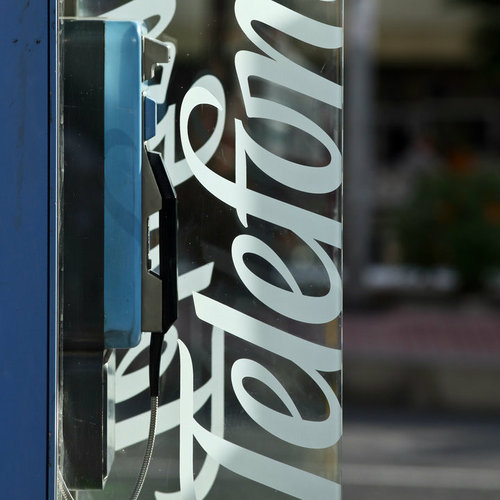Also in today's EMEA regional roundup: TalkTalk shares bomb after £75 million H1 loss; Peugeot et al hitch up to Huawei; more 5G fun with Ericsson; Swisscom targets SMEs.

Also in today's EMEA regional roundup: TalkTalk shares bomb after £75 million H1 loss; Peugeot et al hitch up to Huawei; more 5G fun with Ericsson; Swisscom targets SMEs.
Telefónica is conducting a pilot in Madrid, using 30 homes as test beds for a combination of plastic optical fiber (POF) and 60GHz WiFi which, says the operator, guarantees the user up to 1 Gbit/s of fixed-line connectivity and 4,600 Mbit/s of "theoretical" connectivity over the WiFi. Telefónica's partner in the pilot is KDPOF, a recently hatched Spanish chipset provider whose technology has become the Ethernet standard for POF, according to the Institute of Electrical and Electronics Engineers Inc. (IEEE) and the European Telecommunications Standards Institute (ETSI) . POF comes with a 1mm polymer core, can be sliced with a cutter and is considerably cheaper than glass fiber.
More than a tenth was wiped off the value of shares in TalkTalk in early trading after it posted fiscal first-half pre-tax losses of £75 million (US$98.7 million), compared with a profit last year of £30 million ($39.5 million). The UK broadband and pay-TV provider also warned that its full-year profits are likely to come in at the lower end of earlier guidance, of between £270 million ($355.6 million) and £300 million ($395.1 million). As the Daily Telegraph reports, its abandonment of plans to set up its own mobile network racked up a £31 million ($40.8 million) exceptional cost. In a statement, TalkTalk said that a "simple and compelling new mobile proposition" would be launched its fiscal third quarter.
PSA Group, the French carmaker which owns Peugeot, Citroen and Vauxhall, is to collaborate with China's Huawei Technologies Co. Ltd on developing a secure connected vehicle system, Reuters reports. The first fruits of their labors should emerge next year in Europe and China.
Two more contract wins for Ericsson AB (Nasdaq: ERIC) with a 5G flavor: In South Africa, the Swedish vendor is teaming up with MTN Group Ltd. for a 5G trial in the first quarter of 2018, while in Romania, RCS & RDS (which is, confusingly, one operator) has chosen Ericsson to upgrade its Digi Mobil network with 5G-enabled and NB-IoT-ready radio gear, focusing on the country's main cities.
Third-quarter operating profit is up 14.2% year-on-year at Russia's Mobile TeleSystems OJSC (MTS) (NYSE: MBT), to 27.6 billion Russian rubles ($457 million), on revenue that rose 2.1% to RUB114.6 billion ($1.9 billion). In terms of mobile subscribers, however, the picture isn't quite so rosy: In Russia, Ukraine and Belarus subscriber numbers all fell slightly compared to last year's figures. (See MTS Marketing Boss Eyes $760M in Annual Software Sales and Russia's MTS to 'Sacrifice' Connectivity in Software Rebirth.)
Swisscom AG (NYSE: SCM) is targeting SMEs with its "Smart ICT" offering, a subscription-based IT management service that is run in the cloud. Prices start at 140 Swiss francs ($142), per month, per workplace. The idea is that smaller Swiss companies can get on with, say, making top-notch chocolate, rather than worrying about why the network's down.
Netstream, the Switzerland-based company that describes itself as a premium TV-as-a-service (TVaaS) provider, has chosen Sweden's Agama Technologies AB to meet its OTT service assurance needs.
In a bid to keep the UK in the technology race as it heads, lemming-like, towards the Brexit cliff edge, the British government says it will double the number of visas available to "exceptional" workers wanting to come to the UK to toil in fields such as software and science. As Reuters reports, this means there will in future be 2,000 such visas up for grabs. The measure forms part of a -- don't spend it all at once! -- £20 million ($26 million) package of measures intended to enable public services to make better use of developments such as artificial intelligence.
— Paul Rainford, Assistant Editor, Europe, Light Reading
About the Author(s)
You May Also Like











